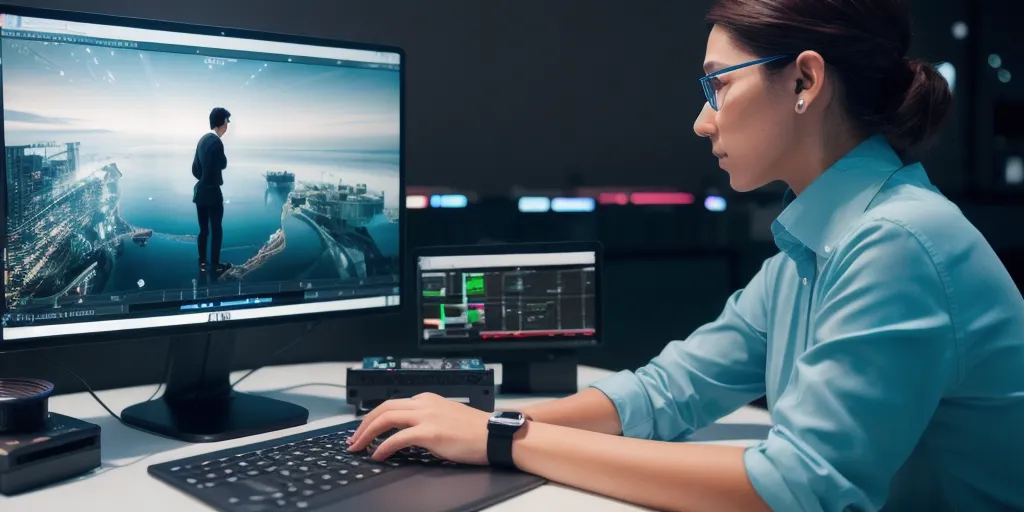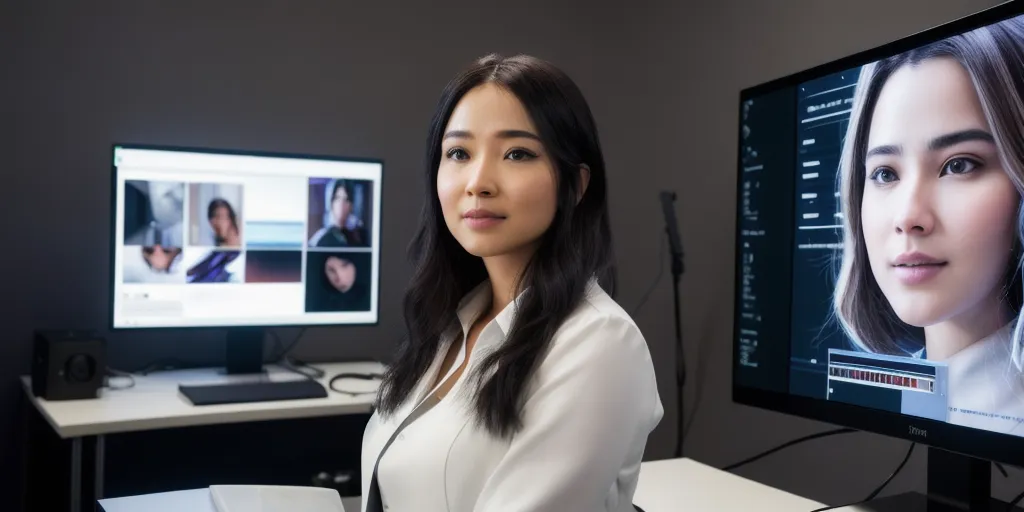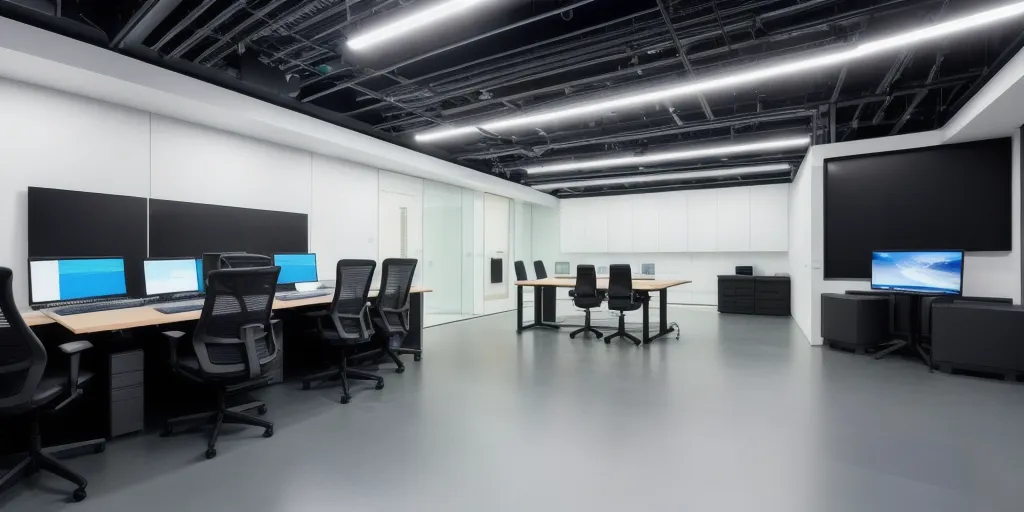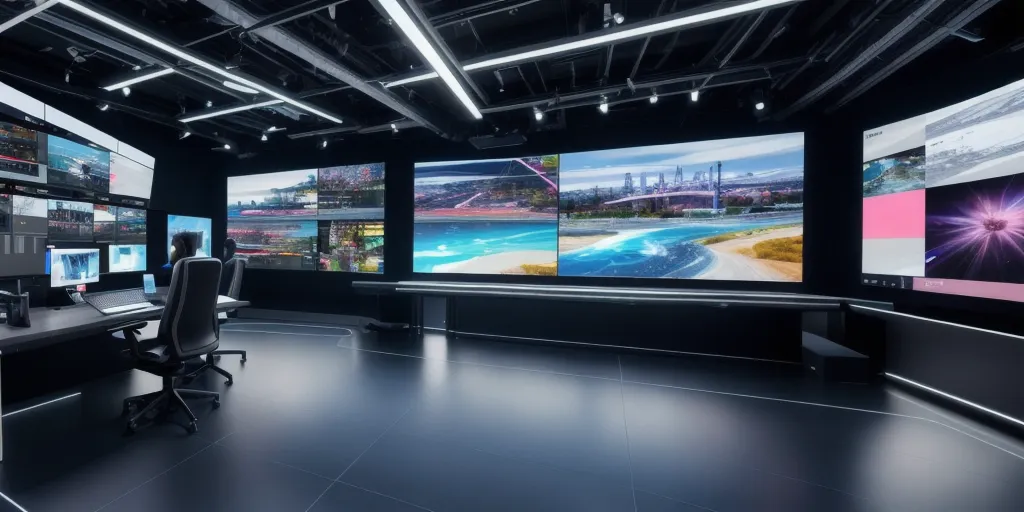To make AI videos, you will need to utilize artificial intelligence technology to create and edit video content. One way to do this is by using AI-powered video editing software, such as Adobe Premiere Pro or Final Cut Pro X, which can help automate tasks like color correction, audio editing, and even suggest edits based on algorithms.
Additionally, you can use AI-generated content, such as deepfake technology, to create realistic videos by swapping faces or altering voices. Another method is to use AI to analyze and optimize your video content for better engagement, such as using AI algorithms to determine the best time to post videos or which keywords to include for better search engine optimization.
Overall, making AI videos involves leveraging artificial intelligence tools and techniques to enhance the quality, efficiency, and effectiveness of your video production process.
By incorporating AI into your video creation workflow, you can streamline tasks, improve content quality, and stay ahead of the curve in the ever-evolving digital landscape.
What ai-powered software can assist in video editing?

AI-powered software has revolutionized the field of video editing by offering advanced tools and features that can streamline the editing process and enhance the overall quality of the final product. One popular AI-powered software that can assist in video editing is Adobe Premiere Pro.
This software utilizes AI technology to automate tasks such as color correction, audio syncing, and even suggesting edits based on the content of the video. Another option is Magisto, which uses AI to analyze footage and create professional-looking videos with minimal input from the user.
Additionally, Lumen5 is a great tool for creating engaging social media videos, as it uses AI to automatically generate video content from text. These AI-powered software options not only save time and effort for video editors but also help in achieving a polished and professional end result.
By leveraging the power of AI technology, video editors can take their projects to the next level and create visually stunning content with ease.
How can deepfake technology enhance video creation?

Deepfake technology has the potential to greatly enhance video creation in a variety of ways. One of the key benefits of deepfake technology is its ability to seamlessly integrate faces and voices into videos, allowing for more realistic and engaging content.
This can be particularly useful in the film industry, where actors can be digitally inserted into scenes or historical figures can be brought back to life. Additionally, deepfake technology can be used to dub videos into different languages, making them accessible to a wider audience.
Another advantage of deepfake technology is its ability to create personalized content, such as personalized messages or advertisements. This can help businesses connect with their customers on a more personal level and increase engagement. Overall, deepfake technology has the potential to revolutionize the way videos are created, making them more dynamic, engaging, and personalized.
By leveraging this technology, content creators can take their videos to the next level and captivate audiences in new and innovative ways.
How does ai optimize video content for better engagement?

Artificial Intelligence (AI) plays a crucial role in optimizing video content for better engagement by utilizing various algorithms and data analysis techniques. One way AI achieves this is through personalized recommendations based on user preferences and viewing history.
By analyzing user behavior, AI can suggest relevant videos that are more likely to capture the viewer’s interest, leading to increased engagement. Additionally, AI can optimize video content by automatically generating captions, thumbnails, and metadata, making it more searchable and accessible to a wider audience.
AI can also analyze viewer engagement metrics such as watch time, click-through rates, and social media shares to identify trends and patterns that can be used to tailor future video content for maximum impact. Furthermore, AI-powered tools can enhance video quality by automatically adjusting lighting, color, and sound levels to create a more visually appealing and immersive viewing experience.
Overall, AI’s ability to analyze data, predict user behavior, and automate content optimization processes makes it an invaluable tool for improving engagement with video content.
What tasks can ai automate in video production?

Artificial Intelligence (AI) has the capability to automate various tasks in video production, streamlining the process and increasing efficiency. One key task that AI can automate is video editing, where algorithms can analyze footage, identify key moments, and even suggest edits based on predetermined criteria.
This can save time for editors and ensure a consistent style throughout the video. AI can also automate the process of transcribing audio, making it easier to search for specific content within the video.
Additionally, AI can assist in color correction and grading, analyzing the visual elements of the footage and making adjustments to enhance the overall quality of the video. Another task that AI can automate is the creation of subtitles and captions, ensuring accessibility for viewers with hearing impairments.
Overall, AI can play a significant role in automating repetitive and time-consuming tasks in video production, allowing creators to focus on more creative aspects of their work. By leveraging AI technology, video production can become more efficient, cost-effective, and accessible to a wider audience.
How can ai improve the quality of video content?

Artificial Intelligence (AI) can significantly enhance the quality of video content in various ways. One key aspect is through the use of AI-powered algorithms that can analyze and enhance video quality by adjusting factors such as brightness, contrast, and color balance.
This can result in clearer, more vibrant visuals that are visually appealing to viewers. Additionally, AI can be used to automatically detect and remove any imperfections or distortions in the video, leading to a smoother and more professional-looking final product.
AI can also play a crucial role in improving the editing process by automating tasks such as scene detection, object recognition, and even suggesting creative editing choices based on patterns and trends in the content. Furthermore, AI can help personalize video content for individual viewers by analyzing their preferences and viewing habits, thereby increasing engagement and satisfaction.
Overall, AI has the potential to revolutionize the video production industry by streamlining processes, enhancing visual quality, and creating more personalized and engaging content for audiences.